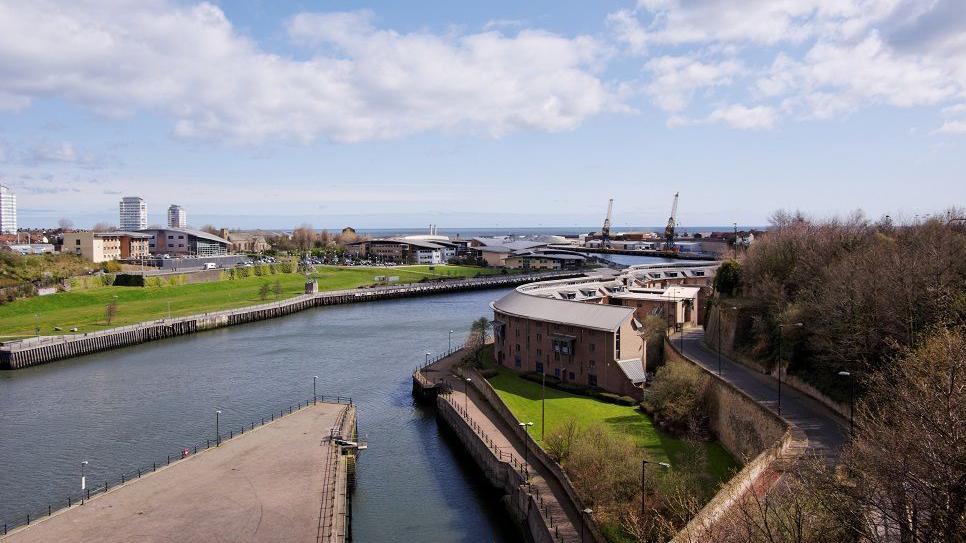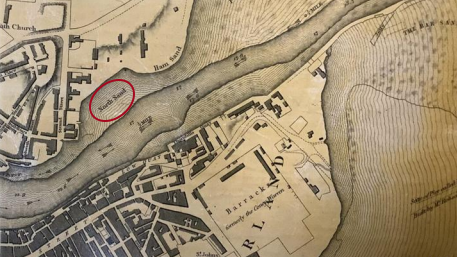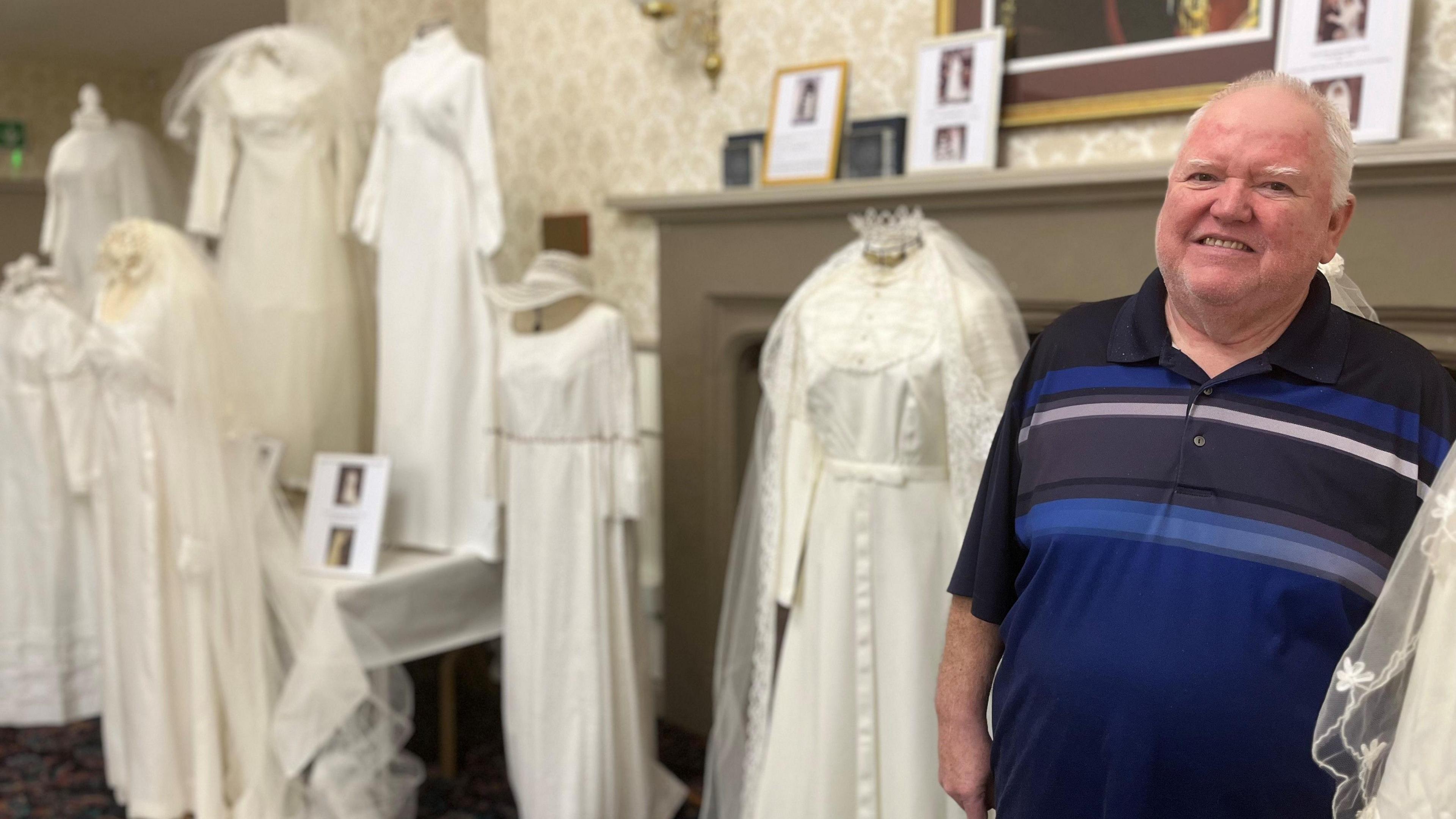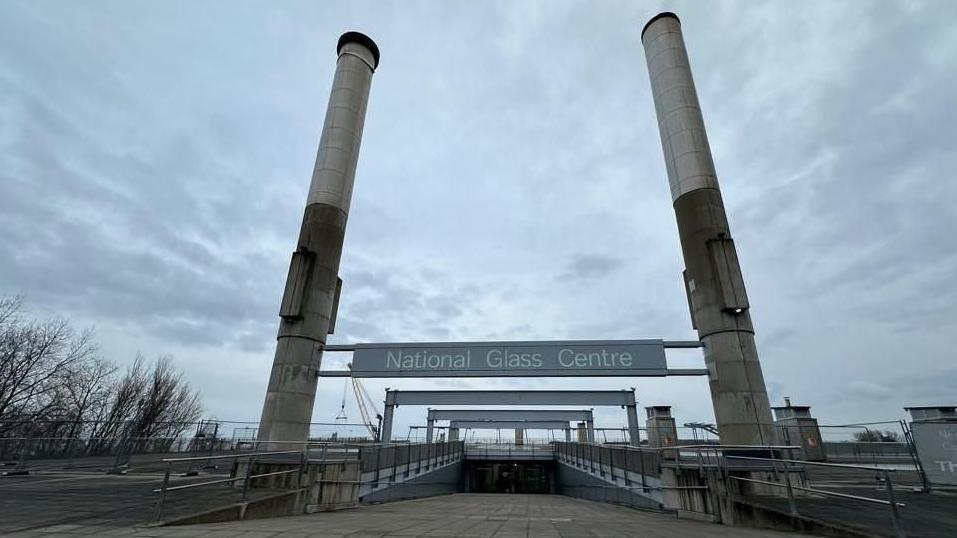Strike murders to be commemorated 200 years on

North Sands Beach is now the site of Sunderland University's St Peter's Campus
- Published
The murder of seven people during a seafarers strike 200 years ago is being commemorated after being "lost from the history books".
In 1825, at least seven people were shot dead by soldiers during attempts to end a strike led by seamen who were resisting wage cuts and demanding higher pay on North Sands beach in Sunderland.
David Scott, lead organiser of the North Sands Massacre Bicentennial Commemorations, said the "massacre" should be remembered, but that few people had heard of the tragedy.
Now the deaths will be honoured with traditional songs, speeches and a procession towards the site beginning at 14:00 BST at St Peter's Church.
On the 3 August 1825, under the leadership of local magistrate John Davison and Lieutenant Phillips, 12 soldiers from the 3rd Light Dragoons forced the striking seamen to return to North Sands beach from the River Wear where they had been blocking larger ships from sailing.
More than 100 people, including women and children, had gathered on the beach where the soldiers eventually opened fire.
Mr Scott said six people were seriously wounded and at least seven people were killed.

The seamen had retreated back to North Sands beach before the soldiers opened fire
A coroner ruled the deaths of sailors Thomas Aird, 42, Richard Wallace, 45, and John Dover, 27, were justifiable homicide.
Ralph Hunter Creighton, 22, was shot dead while working as a carpenter at a nearby shipyard.
Labourer James Quigley, 31, also died after being hit by a stray bullet while walking home from work.
The names of two other people were recorded as killed in the parish record - Thomas Wilkinson, 25, and Mary Wilson, 76.
"It was clearly a massacre," Mr Scott said.
"It's just been completely lost in the history books and it's certainly been lost in public memory.
"We're not sure exactly at what point this became invisible."
'Great injustice'
Mr Scott said it was a "massive event" and that he had found more than 60 newspaper reports going back to 1825.
At the time the Sunderland seafarers union and the Seamen's Loyal Standard Association (SLSA) also believed the deaths should be remembered.
"It was raised at the highest political level," he said.
"Sir Robert Peel, who was then home secretary, knew all about it."
North Sands is now the site of Sunderland University's St Peter's Campus, where a procession will take place and a wreath laid.
"We're challenging the great injustice for these victims," Mr Scott said.
Follow BBC Sunderland on X, external, Facebook, external, Nextdoor and Instagram, external.
Get in touch
Do you have a story suggestion for BBC Wear?
Related topics
Related stories
- Published25 July

- Published21 July

- Published22 July
